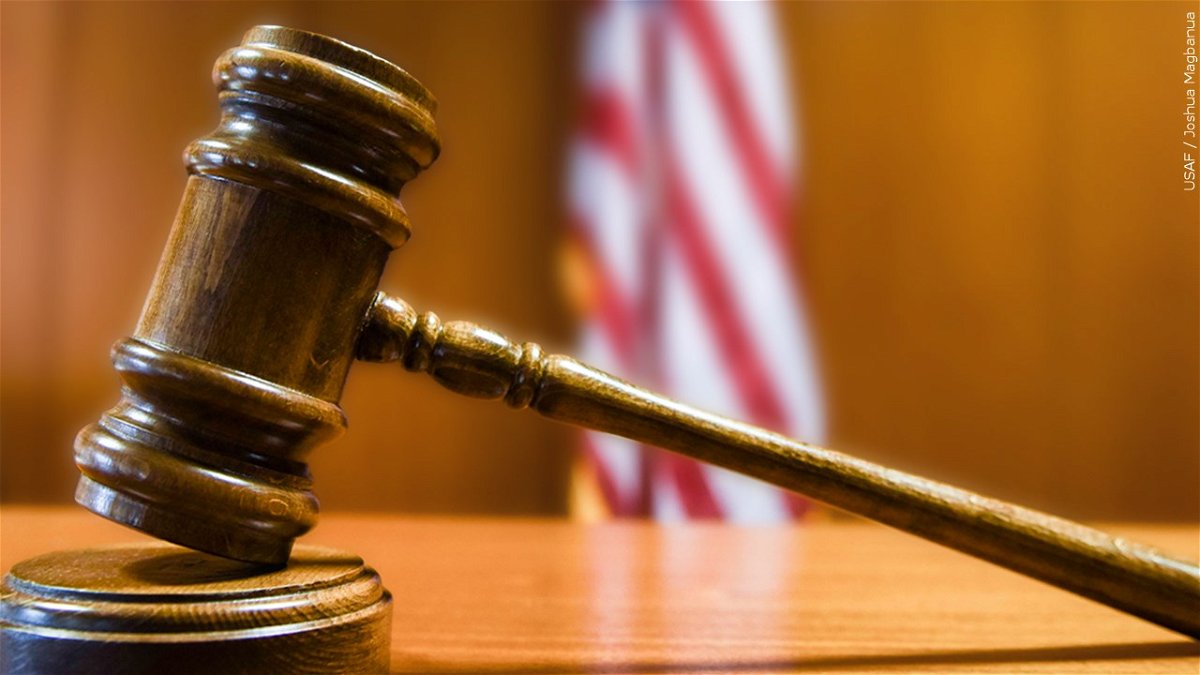Proposal to inject race into criminal case outcomes draws praise, criticism

A bill seeking to have judges weigh a defendant's race and potentially exempt him or her from some sentencing terms to "rectify racial bias" is a "straightforward measure" to correct past wrongs, according to one Riverside County lawmaker, while another characterizes it as an affront to "blind" justice that threatens equal due process of law.
Assembly Bill 852, introduced by Assemblyman Reggie Jones-Sawyer, D- Los Angeles, would establish directives for judges, "whenever they have discretion, to consider the disparate impact on historically disenfranchised and system-impacted populations'' before imposing a sentence.
The legislation stems from determinations made by the California Task Force to Study and Develop Reparation Proposals for African-Americans.
Jones-Sawyer and the task force point to the need to address perceived inequities in the criminal justice system, which the lawmaker argues have long existed and put Black defendants at a historic disadvantage in trial outcomes.
"AB 852 is a straightforward measure to ensure that, when applicable, the disparate impact on historically disenfranchised ... populations is considered in criminal sentencing,'' Assemblyman Corey Jackson, D Perris, told City News Service. "This bill is simply requiring a court to be thoughtful when sentencing people who have been marginalized both historically and presently."
Assemblyman Bill Essayli, R-Norco, a former state and federal prosecutor, has been an outspoken opponent of the legislation, publicly stating that the proposal would wrongly ``consider people's race in government actions.''
"Justice is blind,'' Essayli said during an address to the Assembly. "As a prosecutor, (I) made a strong effort to proceed according to the facts of the case and merits of the case. We've never considered people's race in the criminal justice system. We consider conduct. Lady justice is blind. Asking her to take off the blindfold and look at someone's race, I think, is wrong."
AB 852 bears similarities to a bill signed into law by the governor last September, AB 256, the California Racial Justice Act. That measure provides a series of options that defendants can exercise to challenge a conviction if there was a "substantial likelihood" that racial inequities were implicit in the trial process and conviction.
An Assembly Committee on Public Safety analysis of Jones-Sawyer's bill did not cite examples submitted by the assemblyman or the task force describing specific instances where Black defendants received potentially unjust sentences linked to racial bias.
Findings in the public safety committee report noted evidence of disparate outcomes between Black and Caucasian defendants have been shown in federal sentencing data. However, in the California Judicial Council's last report on racial factors in sentencings statewide, researchers said "there was no statistically significant differences in sentence lengths for similarly situated offenders by race and ethnicity."
The California Public Defenders Association has voiced support for AB 852, providing a statement attached to the report saying that while the state's criminal sentencing guidelines operate on the "presumption that all people are treated equally by the law,'' the reality is, ``sentencing outcomes frequently turn on the accused's wealth ... and skin color."
The California District Attorneys' Association has not taken a position on the measure. The organization's current president, Riverside County District Attorney Mike Hestrin, declined comment.
"I am glad to support measures like AB 852, which help ensure that everyone has a right to thoughtful due process, especially when history and data have shown that not to be the case for marginalized groups,'' Jackson said.
For Essayli, AB 852 is, itself, "racist," as well as "unconstitutional."
"You're judged on your individual conduct, not as a group or larger entity,'' he said. "We ask, `What cases are you talking about (validating historic racism)?' They won't talk about individual cases. Their (arguments are) indefensible."
The bill was approved by the Assembly in May on a mostly party-line vote and will be taken up by the state Senate Committee on Public Safety when the Legislature reconvenes on Monday, following summer recess.
